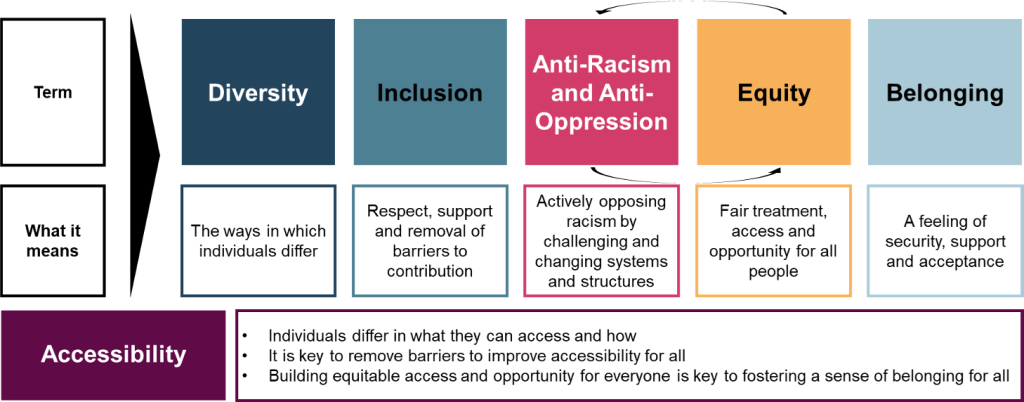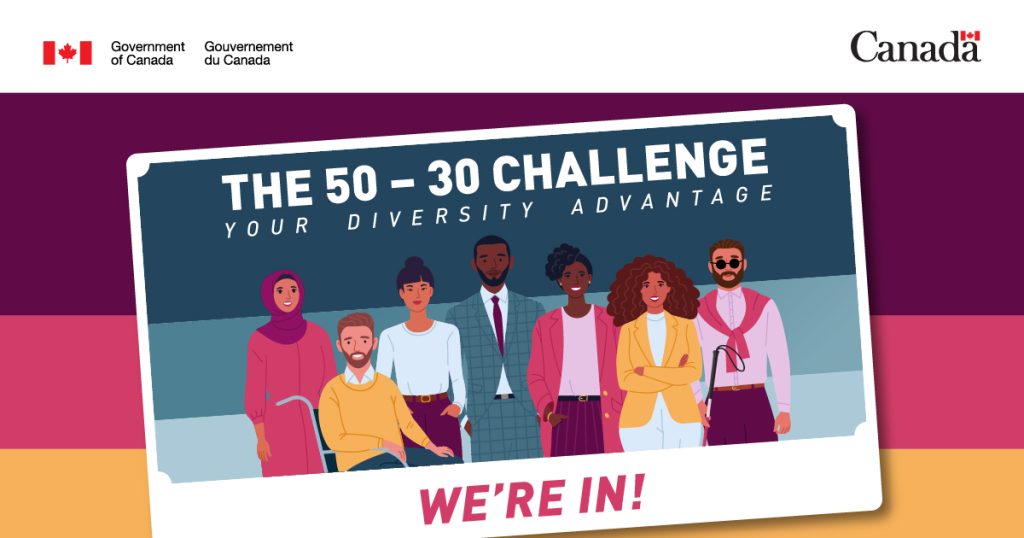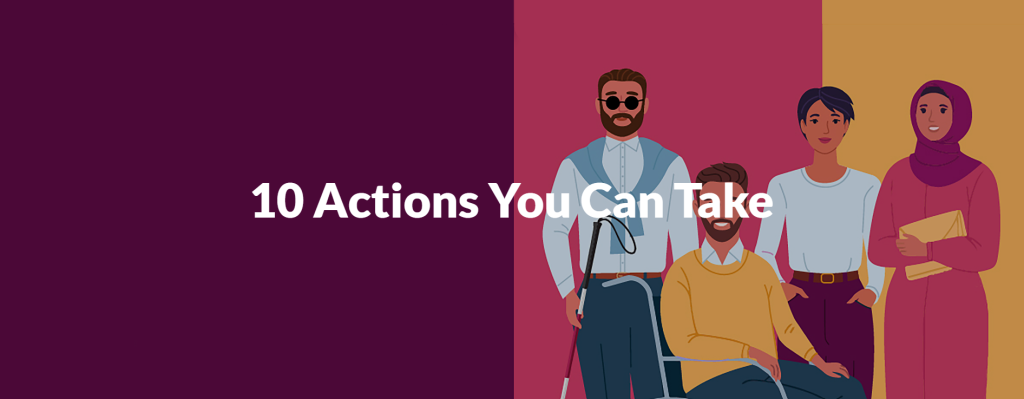LiveWorkPlay and the 50-30 Challenge: Part 1 of 3
The 50 – 30 Challenge is an initiative between the Government of Canada, Canadian businesses, and diversity organizations. At the time of publishing this post, there were 2,378 participating organizations, and more are signing up every day! LiveWorkPlay is proud to be just one of the members of that growing list.
The goal is to challenge Canadian organizations to increase the representation and inclusion of diverse groups within their workplaces, while highlighting the benefits of giving all Canadians a seat at the table.
The 50 – 30 Challenge asks that organizations aspire to two goals:
- Gender parity (50% women and/or non-binary people) on Canadian boards and/or in senior management
- Significant representation (30%) on Canadian boards and/or senior management of members of other equity-deserving groups, including those who identify as Racialized, Black, and/or People of colour (“Visible Minorities”), people with disabilities (including invisible and episodic disabilities), 2SLGBTQ+ and/or gender and sexually diverse individuals, and Aboriginal and/or Indigenous Peoples.
The Women’s Economic Council (WEC) is one of five ecosystem partners, leading the charge on the 50 – 30 Challenge. Each ecosystem partner focuses on engaging with Challenge Participants in different sectors. Beyond taking part as a Challnge Participant, LiveWorkPlay has also partnered with WEC in the role of Community Liaison Partner. It started with a call from WEC to LiveWorkPlay, with Keenan Wellar as the intitial lead representative who registered us for the challenge, and then Rebecca Coxon took over as our Project Leader in November 2022.

In Part 2 (our February posting) we will share more about Rebecca’s activities with the WEC in support of the 50 – 30 Challenge, which also includes another ecosystem partner, Colleges & Institutes Canada (CICan). And finally, in Part 3, we’ll share our own progress with the LiveWorkPlay DEI journey and the 50 – 30 Challenge.

Many disability organizations are advocating for awareness and actions to ensure that people with disabilities are not a forgotten population in any Diversity, Equity, and Inclusion (DEI) strategy. Joining the challenge and taking on a Community Liaison Partner role has afforded LiveWorkPlay the opportunity to learn from others and share our own work in addressing the significant barriers to living an included life in the community for people with intellectual disabilities and autisitc persons. Whether it is income disparity, barriers to accessing affordable housing, exclusion from labour market employment, or social isolation, this is one of the most excluded groups of Canadians. It is also important to recognize the intersectionality of these issues – people with intellectual disabilities who are also members of other equity-deserving groups face additional challenges.
The DEI journey can feel overwhelming to busy organizations that are dealing with a long list of complex concerns, and a key goal of the 50-30 Challenge is to help them access the resources they need to move forward with the right tools and support.
The What Works Toolkit is a bountiful online resource designed specifically for Canadian companies and organizations who are looking to adopt DEI initiatives. The toolkit offers support for:
- policy development
- approaches for recruitment, mentorship and promotion
- employee and board member retention
- anti-racism
- anti-harassment
- inclusive workplace strategies
- success stories from real organizations
The tools you can select from are:
- 10 Actions You Can Take
- Starting the Conversation
- Talent Processes Tool
- Board and Leader Guidebook
- Guide to Sustaining Organizational Change
There are also ongoing high quality events, articles, and courses offered at no charge! For example, on January 23, you can attend “DEI Fundamentals and Unconscious Bias” which is a core course delivered as part of the UN Global Compact Network Canada’s support to 50 – 30 Challenge participants in partnership with the Canadian Centre for Diversity and Inclusion.
We’ll be back next month with Part 2! Meantime, here are Ten Actions You Can Take!


